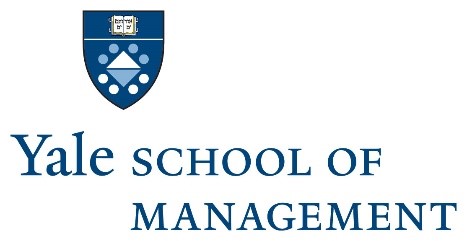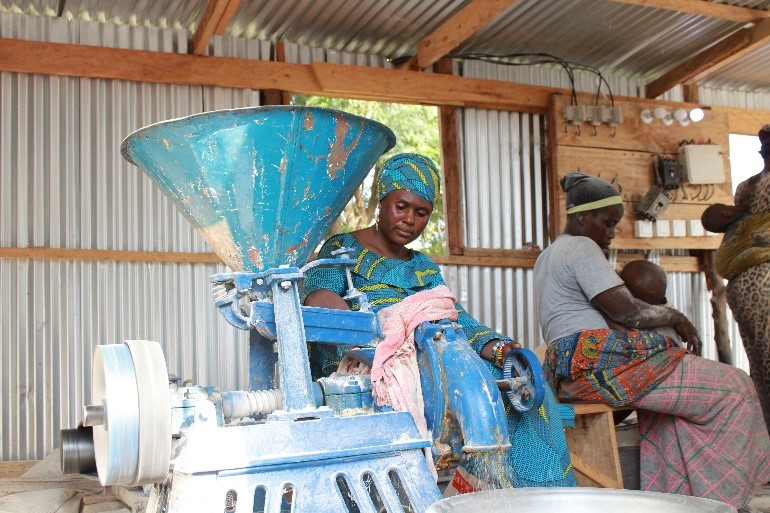Evaluation: moving beyond what is right or wrong - IOE
Yale University, 5 April 2023 – “The Independent Office of Evaluation of IFAD [IOE] focuses on both learning and accountability. It’s not just about saying what is right or wrong. We are dealing with social data, where it is sometimes not easy to cast a judgement, and often times we are dealing with a motion picture, not a simple snapshot”, stated Dr Indran A. Naidoo, Director of IOE, explaining the complexity and ramifications of the evaluation function during a lecture at Yale University, on 5 April 2023.
Dr Naidoo delivered the lecture as part of the course ‘Program Evaluation, Spring 2023’, of the Yale University School of Management. Led by Dr Beth Osborne DaPonte, the course introduces students to the concepts and tools used to evaluate programmes and policies. The course considers evaluation from an equity perspective and focuses on evaluation techniques and approaches that are used in practice to evaluate programs and initiatives of non-profits, agencies, NGOs, and government. A combination of Management in Business Administration (MBA), Public Health, Development Economics, and Forestry students attended the lecture.
The nexus between learning and accountability in the context of independence was at the heart of the session. Dr Naidoo underscored that, within the rubric of a fully independent office of evaluation, it is possible to engage in learning, which is a reflective activity that comes from receiving frank and direct feedback. The prerogative of IOE is to provide this feedback, in order to ensure that the product received by IFAD’s beneficiaries on the ground is the best they could get.
“The reason for independence is a critical one. You want a unit, within an organization, that is able to conduct its work without fear, favour or prejudice, that is not under any political or administrative pressure”, Dr Naidoo clarified.
IOE advances a process of principled engagement. Traditional, static and linear approaches move from learning to sequencing. Having recognized that engagement is a part of credibility, IOE has moved beyond a transactional approach to evaluation between evaluator and evaluand. IOE’s approach is based on dynamic and engaging process of triangulation that is based on together independence, credibility and utility.
In this context, IOE is creating a culture of receptivity to results through engaged processes, including in the face of critical feedback, through a new approach to strategic communication. For the first time in its over forty-year history, IOE is able to communicate with full independence, in a move that bears few precedents among evaluation offices of International Financial Institutions and UN entities. This, as the Office has embraced a multi-pronged approach to its strategic communications, which has spawned a comprehensive cohort of tailor-made digital multimedia solutions, customized to maximise the end-user experience.
“The new communication product mix responds to the particular nature of IOE’s work, which calls for enhanced synergies between the Office and its stakeholders. The on-line solutions foster greater user engagement by speaking to the core of what IOE’s audience looks for, bolstering direct and flexible avenues for interaction, and inviting exciting opportunities for people to create a personal connection with the Office in a dynamic fashion”, highlighted Dr Alexander Voccia, Coordinator of the Evaluation Communication Unit at IOE, who took the floor during the lecture.
Seeking to further build on these achievements, IOE is crafting communication and outreach strategies that build on social neuroscience foundations. This, as evidence suggests that applying social neuroscience-based principles to the field of evaluation would likely strengthen evaluators’ resilience, help them to find the mechanisms that make policies, programmes and interventions work, and enhance the impact of their communication efforts.
To ensure that the substantive content that forms the basis of these engagement, reflection and learning processes is of the highest possible standard, Dr Naidoo also explained that IOE embraces evaluation mixed methods processes, driven by methodological pluralism. IOE considers the environment and ensures methods allow for downward accountability, moving beyond the idea that impact is the only criterion to be focused upon, and revising the obsolete principle of a ‘golden standard’ of randomized controlled trials and quasi experimental design.
“IOE embraces and understands new content and methodologies that provide both real time information on change and impact. In this regard, IOE recognizes that there is no gold standard, that methods should feed the question, and that issues need to be framed in the context of the multi-disciplinary world that we live in”, Dr Naidoo said.
The lecture also offered an opportunity to address the conundrum of evaluation and audit offices in multilateral organizations as a seemingly insurmountable divide for joint efforts. Drawing on his experience as former Director of the Independent Evaluation Office of the UN Development Programme, Dr Naidoo observed that joint assessments could help promote a holistic three-dimensional view of performance, which looks both inside and outside organizations to see whether inputs matched with outputs and outcomes.
For further information, please contact Alexander Voccia [here]
RESOURCES
- To access the Dr Naidoo’s presentation, which includes a full list of reference materials, please click here.
- To access the Yale School of Management website, please click here.
CONTACTS


